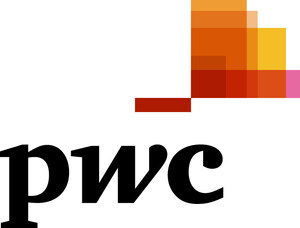NEW YORK, Jan. 6, 2011 /PRNewswire/ -- Federal food safety legislation just signed by President Obama will accelerate the urgency for many companies to examine every link in the food chain to ensure that they have adequate preventive controls in place to identify and prevent problems that may result in food-borne illnesses, according to a new report from PwC US and Leavitt Partners, entitled Point of View: FDA Food Safety Modernization Act: The President signs the most sweeping overhaul of food-safety legislation since 1938. To protect their brands, food companies will need to meet higher regulatory standards and likely need to go beyond compliance in order to win the loyalty of consumers and investors and gain competitive advantage.
(Logo: http://photos.prnewswire.com/prnh/20100917/NY66894LOGO )
The Centers for Disease Control and Prevention (CDC) estimates that there are 48 million cases of food-borne illnesses in the US each year, resulting in 128,000 hospitalizations and over 3,000 deaths. The recent national outbreak of salmonella in eggs last year resulted in the recall of hundreds of millions of eggs. Other recent examples include tainted peanut butter, cookie dough and fresh bagged spinach that sickened hundreds of people across the country. The new bill gives the FDA expanded authority and ability to monitor the safety of the food supply, and to take quicker and more effective action against companies that don't adequately protect against food contamination.
"Today's globally extended supply chains mean that, unfortunately, contamination can turn up in more products and more often than in the past," said Carter Pate, who leads the global government and infrastructure teams at PwC. "With the new legislation, food companies at every level will be required to develop and document food safety plans that identify and prevent hazards at each facility."
The report outlines some of the significant features of the legislation, such as requirements to document identification of hazards and implementation of preventive controls and develop defensive plans aimed at preventing intentional contamination if the food is considered to be highly vulnerable. It also provides examples of leading practices that can help food companies not only comply, but go beyond the proposed rules for highly improved performance. Companies that aspire to be market leaders can start by reviewing their food safety plans, training programs and supply chains, with an eye toward making improvements.
"Heightened focus on food safety by consumers, regulators and Congress has created new challenges for the food industry that can result in erosion of a brand overnight," said David Acheson, Managing Director of Leavitt Partner's Food and Import Safety Practice. "The new food safety legislation is going to make these challenges more acute and the need for change more urgent."
For a copy of the Point of View and more information about PwC's food safety practice, please visit www.pwc.com/us/foodsafety.
For more information about PwC's retail & consumer products industry practice, please visit www.pwc.com/us/retailandconsumer.
Leavitt Partners advises clients in the practice areas of health care and food safety. Our team includes individuals with deep experience in health care restructuring and domestic and international food safety. We apply this experience, our knowledge and a network of global relationships to supplement the thinking of senior executive teams, facilitate connections, solve problems, create value and deliver results. Visit us online at www.leavittpartners.com.
PwC firms provide industry-focused assurance, tax and advisory services to enhance value for their clients. More than 161,000 people in 154 countries in firms across the PwC network share their thinking, experience and solutions to develop fresh perspectives and practical advice. See www.pwc.com for more information.
© 2011 PwC. All rights reserved. "PwC" and "PwC US" refer to PricewaterhouseCoopers LLP, a Delaware limited liability partnership, which is a member firm of PricewaterhouseCoopers International Limited, each member firm of which is a separate and independent legal entity.
SOURCE PwC
WANT YOUR COMPANY'S NEWS FEATURED ON PRNEWSWIRE.COM?
Newsrooms &
Influencers
Digital Media
Outlets
Journalists
Opted In





Share this article